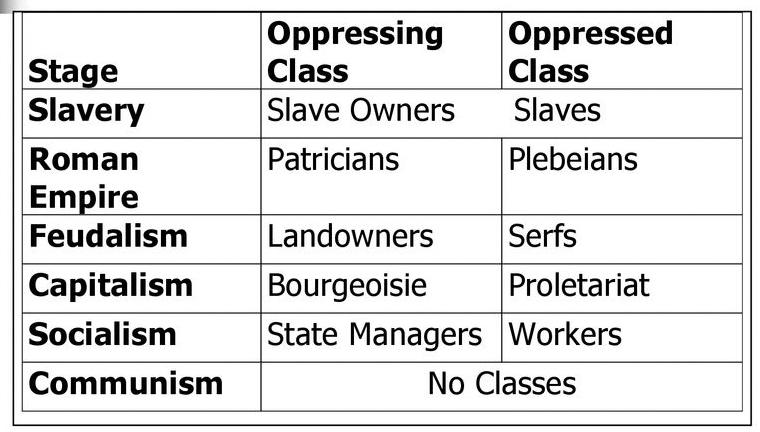- Home
- Prelims
- Mains
- Current Affairs
- Study Materials
- Test Series
Discuss Karl Marx's concept of class. (UPSC CSE Mains 2020 - Political Science and International Relations, Paper 1)
According to Karl Marx, the accessibility of means to fulfil the fundamental needs of different strata of the society may not be equal. This inequality causes a division into classes, leading to class struggle. According to Marx, human history is the history of class struggle, as the class that owns the means of production economically exploits the rest of the classes.
Class, for Marx, refers to how, in production, a surplus gets produced. All human societies produce such surpluses. However, societies differ in how they organize the production and distribution of this surplus. In Marx’s view, there have always been subsets of populations in communities (from families through villages to whole nations) that have performed labor in the production of goods and services. Those subsets have always produced more output than they themselves consumed: the “surplus” output or simply the surplus. That surplus has then been distributed to other persons inside or outside the community.
For Marx, the analysis of social class, class structures and changes in those structures are key to understanding capitalism and other social systems or modes of production. In the Communist Manifesto Marx and Engels comment that the history of all hitherto existing society is the history of class struggles.
Analysis of class divisions and struggles is especially important in developing an understanding of the nature of capitalism. For Marx, classes are defined and structured by the relations concerning (i) work and labour and (ii) ownership or possession of property and the means of production. These economic factors more fully govern social relationships in capitalism than they did in earlier societies. While earlier societies contained various strata or groupings which might be considered classes, these may have been strata or elites that were not based solely on economic factors – e.g. priesthood, knights, or military elite.










 Latest News
Latest News
 General Studies
General Studies